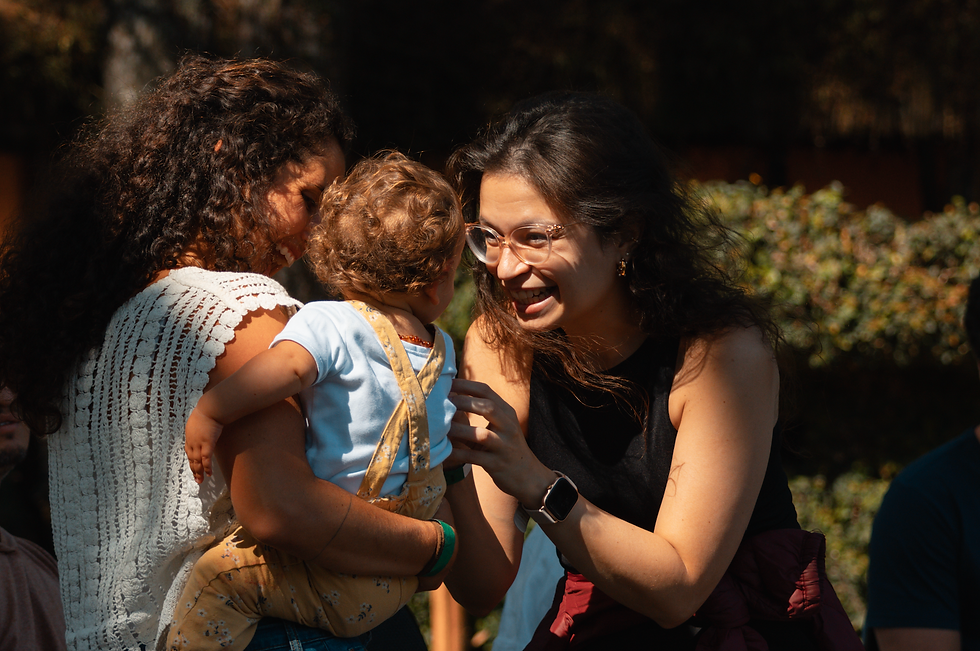Philanthropy & Regenerative Economics: A Call for the Courage to Change
- Jul 29, 2025
- 3 min read
Updated: Aug 19, 2025

An article by Renata Minerbo, our Head of Community & Partnerships, originally published in Portuguese by our network channel, GIFE, an association of private social investors in Brazil.
In social investment, there's a lot of discussion around donation strategies and impact measurement. However, few question the investments of philanthropists (whether corporate or family-based), which often sustain the very systems creating the problems they seek to solve.
Aware of this contradiction, Be The Earth Foundation was born in 2020 with the intention of fully integrating its investment and philanthropic portfolios under a single vision — seeking coherence and a healthier relationship with the capital under our stewardship.
Here, I share part of this ongoing reflection, exploring what we call the Wholesome Capital Approach, and testing alternative models that prioritise collaborative solutions and systemic impact.
Historically, philanthropy has been seen as a way to mitigate inequality and other socio-environmental challenges. Yet even innovative philanthropic practices may only alleviate symptoms, rarely addressing the economic dynamics that perpetuate the deep crisis we are living through.
The contradictions are many. For example, philanthropic funds often distribute only a minimal percentage of their total assets, with legal structures designed to preserve or even grow donor wealth. Many foundations fund causes that are direct consequences of their own business or investment choices, yet continue with "business as usual", feeding into an extractive and limitless logic.
When the investments that make philanthropy possible are rooted in the exploitation of natural resources and the precarisation of labour, the role of philanthropy becomes even more complex. To transform this dynamic, we must re-evaluate how capital is managed and directed as a whole — promoting practices that not only redistribute more resources but also question and challenge the capitalist system and its structures.
Another key issue — rarely discussed despite its importance — is the need to rethink capital accumulation itself. It may sound radical, but as Warren Buffett puts it, “If you’re in the luckiest 1% of humanity, you owe it to the rest of humanity to think about the other 99%.”
It is essential that the ultra-wealthy relinquish part of their wealth if we are to have any real chance of reducing inequalities.
The transition from a failed traditional economy to what we call a regenerative economy — one that serves people, the planet, and all living beings — is not easy. It requires alignment between values and investment strategies, and demands people who are ready to take risks to “mainstream” a pipeline of pathways toward this transition. Impact investing is one such tool, but it proves insufficient to lead this shift and requires a bolder, more systemic approach.
In this spirit, Be The Earth chooses to reduce the wealth of its founders. Unlike examples such as the Swift Foundation or Lankelly Chase, however, it does not set a fixed timeframe for this to happen nor does it plan to wind down the organisation. This strategy proposes a conscious and diverse redistribution process, enabling riskier and more dynamic investments — such as the use of blended finance — while also seeking to collaborate with other capital holders and managers so that resources flow where they are most needed, with fewer bureaucratic constraints.
The future of philanthropy and investment lies in the courage to question the logic of accumulation. To truly tackle inequality, we must go beyond merely including marginalised people in a broken economic model.
By adopting a regenerative economic approach, we can create a model that fosters fair wealth distribution and collective prosperity. More than simply donating resources, it's time to radically shift how we think about money, power, and social impact. The challenge is out there: are we truly ready to transform the system?



